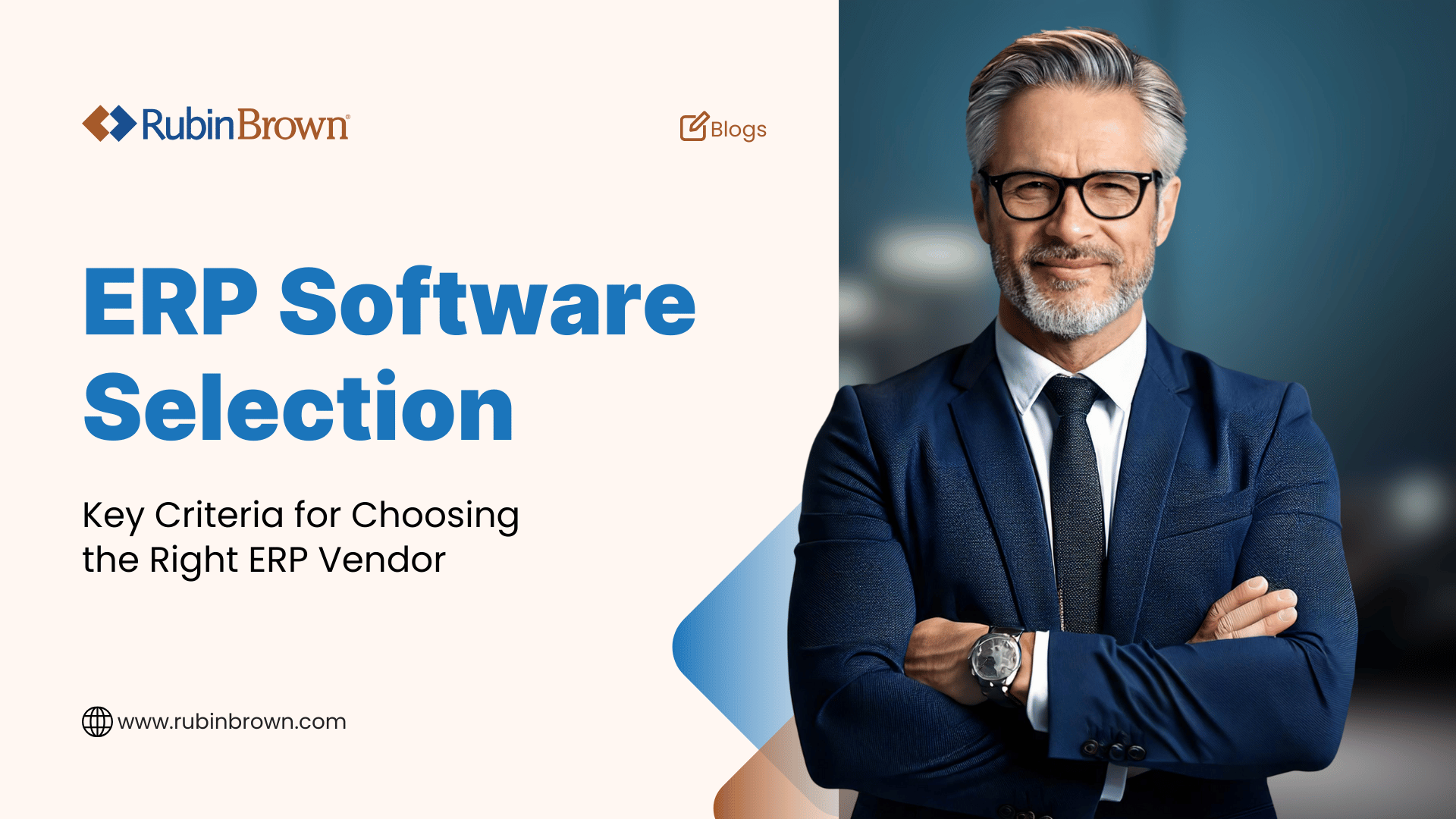Use These Key Metrics to Define the Success of Your ERP Implementation
Enterprise Resource Planning (ERP) systems are the lifeblood of modern businesses, integrating and streamlining critical functions like finance,...
9 min read
KPC_Admin : Updated on July 29, 2024
.png)
Sage Business Cloud Enterprise Management, previously known as Sage X3 ERP, stands at the forefront of innovation, offering medium to large businesses a powerful tool to streamline operations and foster growth. This comprehensive ERP solution blends vast functionality with unparalleled flexibility, serving a wide range of industries including manufacturing, distribution, and services. It seamlessly integrates key business functions—finance, sales, and inventory management—into one unified platform, boosting operational efficiency and providing the agility needed for businesses to thrive in a dynamic market.
With its advanced analytics, intuitive interface, and broad international capabilities, this cloud-based system guides companies towards sustainable success and a competitive edge. Dive into the world of Sage Business Cloud Enterprise Management and see how it's transforming the business environment worldwide.
Sage Business Cloud Enterprise Management, formerly Sage X3 ERP, is a dynamic enterprise resource planning (ERP) solution that meets the demands of medium to large businesses. It streamlines operations, boosts efficiency, and supports growth in various sectors like manufacturing, distribution, and services.
This ERP system integrates essential business operations such as finance, sales, customer service, inventory, manufacturing, and distribution into a single platform, offering a comprehensive view of business activities. This integration improves decision-making, operational transparency, and team collaboration.
A key feature of Sage Business Cloud Enterprise Management is its flexibility. The platform is customizable to fit the unique needs of different industries without compromising operations to a generic model. It also supports international business with features for multiple languages and currencies. The software is user-friendly, with an intuitive interface that simplifies complex tasks and is accessible for users with varying technical skills. Its mobile capabilities allow staff to access information and complete tasks remotely, increasing productivity and flexibility.
The system provides advanced analytics and reporting tools for data-driven insights into business performance, helping to spot trends and opportunities for improvement. This supports strategic decision-making and competitive advantage.
As a cloud-based solution, it offers scalability, security, and cost-effectiveness. Companies can adjust their operations easily without major IT investments and enjoy high levels of security and data protection from cloud technology.
Sage Business Cloud Enterprise Management, previously Sage X3 ERP, is specifically crafted for medium to large enterprises looking to streamline their operations, enhance efficiency, and drive significant growth. Below are key reasons it stands out:
Integrated Business Operations: Sage Business Cloud Enterprise Management excels in integrating business functions into one unified system, covering finance, sales, purchasing, inventory, CRM, and manufacturing. This seamless integration ensures that information flows effortlessly across the organization, promoting efficiency and enabling more strategic decision-making. Additionally, this comprehensive integration eliminates data silos, ensuring that every department operates with the same information.
Customized for Industry Demands: The platform is uniquely tailored to meet the challenges and requirements of various industries, providing specialized features for sectors like manufacturing, distribution, and services. This industry-specific customization ensures that businesses receive a solution that truly fits their operational needs, improving relevancy and effectiveness. It reflects a deep understanding of diverse industry dynamics, offering tools and insights critical for each sector's success.
Supports Global Business: Designed with international business in mind, it supports multiple languages, currencies, and legislations, facilitating easier management of global operations. This global capability is essential for companies looking to expand or maintain a presence in various international markets, simplifying complex global transactions and compliance requirements. It also ensures businesses can operate efficiently across borders without compromising on functionality or compliance.
Easy-to-Use and Mobile: With its intuitive interface and mobile accessibility, the software ensures that employees at all levels can easily adapt to and use the system effectively. This ease of use and mobility enhances productivity by allowing employees to access critical business information and perform tasks from anywhere, adapting to the flexible work environments of today. It caters to the modern workforce's need for flexibility and access on the go.
Analytics for Informed Decisions: It comes equipped with advanced analytics and reporting tools, providing essential insights for timely and informed decision-making. These analytics capabilities enable businesses to monitor performance indicators in real-time, crucial for adapting strategies and optimizing operations swiftly. This data-driven approach empowers businesses to stay ahead in competitive markets by leveraging actionable insights.
Flexible and Scalable: Notably flexible and scalable, the platform can easily accommodate a business's growth and changing needs without requiring a complete overhaul. This flexibility ensures that as businesses evolve, their ERP system can adapt, adding new functionalities or users as needed, safeguarding their investment over time. It's designed to grow with your business, ensuring long-term scalability and adaptability.
Cloud-Based Benefits: Being cloud-based, it offers reduced IT overhead, enhanced security, and better disaster recovery capabilities, allowing businesses to focus more on core operations. The cloud infrastructure not only ensures data security but also provides the scalability and flexibility needed for modern business operations. It leverages cloud computing's strengths to offer a resilient and efficient operating environment.
Encourages Sustainable Practices: The platform promotes sustainable business practices through efficient resource management, helping companies improve their environmental impact alongside their bottom line. By optimizing processes and reducing waste, businesses can achieve not just economic but also ecological sustainability, reflecting a commitment to responsible business practices.
Sage Business Cloud Enterprise Management, originally Sage X3 ERP, is crafted to be highly versatile and adaptable, catering to a broad spectrum of industries. It provides a suite of specialized functionalities designed to meet the distinct needs of various sectors, enabling businesses to streamline their operations, boost efficiency, and foster growth. Here's how this dynamic ERP system meets the unique demands of different industries:
Manufacturing: For manufacturers engaged in discrete, process, or mixed-mode production, Sage Business Cloud Enterprise Management serves as a critical tool. It supports the full manufacturing cycle, including planning, scheduling, production, and quality control. Its capabilities in real-time shop floor control, product lifecycle management, and precise cost tracking help manufacturers enhance their operational efficiency and product quality.
Distribution: In the distribution sector, managing intricate supply chains and logistics is crucial. This ERP system offers advanced inventory management, warehouse operations, order processing, and logistics planning tools. Distributors gain from improved order precision, reduced inventory expenses, and elevated customer satisfaction, staying competitive in their market.
Services: Service-based businesses, from professional services to project-centric firms, need ERP solutions that efficiently manage projects, billing, and resource deployment. Sage Business Cloud Enterprise Management provides project management tools, time and expense tracking, and CRM functionalities, assisting service providers in delivering projects on time, within budget, and to client satisfaction.
Food and Beverage: The food and beverage sector contends with specific challenges like stringent regulatory standards, quality control, and shelf-life management. The ERP addresses these issues with specialized functionalities for recipe management, traceability, compliance management, and demand planning, ensuring food and beverage companies uphold quality while optimizing their supply chain and production processes.
Chemicals: Chemical companies benefit from the ERP's features in formula and recipe management, quality assurance, regulatory compliance, and hazardous material management. Its strong inventory management and traceability functions support the chemical industry's need for precision and safety in product handling.
Construction and Real Estate: In construction and real estate, efficient project, cost, and resource management are crucial for success. Sage Business Cloud Enterprise Management offers tools for project accounting, contract management, and real estate management, aiding these sectors in effectively managing projects, controlling costs, and boosting profitability.
Retail: Retailers aiming to efficiently manage sales across various channels, including online, in-store, or multi-channel, will find this ERP system invaluable. It provides POS integration, e-commerce solutions, and customer management tools, allowing retailers to offer a cohesive shopping experience, manage inventory effectively, and better understand customer preferences.
Overall, Sage Business Cloud Enterprise Management's tailored solutions and adaptable features make it an ideal choice for diverse industries. Its capacity to adjust to the specific challenges and workflows of different sectors enables businesses to refine their operations, swiftly adapt to market changes, and achieve sustainable growth.
Sage X3 is a comprehensive and highly configurable enterprise resource planning (ERP) system that offers a wide range of functionality to meet the needs of growing businesses across various industries. One of the key advantages of Sage X3 is its user-friendly interface, which allows employees to easily navigate the system and customize their dashboards to display the most relevant information. This level of personalization helps improve user adoption and productivity. Additionally, the platform's scalability is a major selling point, enabling companies to manage multiple business units, subsidiaries, and even international operations within a single, integrated system. This streamlines reporting, consolidation, and visibility across the organization.
From a functional standpoint, Sage X3 provides robust ERP capabilities spanning financial management, inventory control, and supply chain optimization. The system also features strong recipe management tools that can benefit food and beverage companies, including the ability to create and manage recipes, ensure precise ingredient measurements, track inventory, and maintain compliance with labeling regulations. The automation capabilities can help streamline common workflows and processes, such as purchasing and inventory replenishment. Furthermore, the mobility features allow users to access critical business data and perform key tasks from a variety of devices, providing flexibility and convenience.
However, the high degree of customization possible with Sage X3 can also present some challenges. While the ability to tailor the system to unique business requirements is a significant benefit, the complexity of the customization process often necessitates the involvement of third-party implementation partners or consultants. This can add substantial time and cost to the deployment. Some users have also reported difficulties in troubleshooting certain error messages and technical issues, especially for non-IT staff. The mobile functionality, while present, is also somewhat limited compared to the desktop experience. Additionally, for organizations with highly specialized or complex requirements, Sage X3 may not be the optimal fit, as the level of customization needed could outweigh the benefits.
Overall, Sage X3 is a powerful and flexible ERP solution that can provide significant value to growing businesses, including those in the food and beverage industry. However, organizations need to carefully evaluate their specific needs and resources to determine if the system's benefits outweigh the potential challenges of managing a highly customized solution.
Sage has built a robust and diverse partner network that plays a crucial role in supporting customers throughout their Sage X3 ERP journey. At the heart of this ecosystem are the Independent Software Vendor (ISV) partners who utilize the Sage ERP X3 Developer Ecosystem to create and integrate custom applications and solutions that enhance the core functionality of Sage X3. These ISV-developed add-ons enable businesses to tailor the ERP system to meet their specific industry requirements and workflows, providing a level of customization that is essential for success.
In addition to the ISV partners, Sage X3 benefits from a strong network of reseller and implementation partners. These specialized firms possess deep expertise in Sage X3 and are instrumental in guiding customers through the selection, deployment, and configuration process. By leveraging their industry knowledge and best practices, these partners ensure a seamless implementation and help customers maximize the value of Sage X3 for their unique business needs.
Complementing the resellers are a variety of consulting and support partners who offer services ranging from business analysis to user training, go-live support, ongoing maintenance, and even outsourced IT services. This comprehensive support network is designed to assist customers in overcoming challenges and optimizing their investment in Sage X3 over the long term.
Furthermore, Sage X3 benefits from partnerships with cloud and hosting providers, enabling organizations to access the ERP system as a flexible and scalable cloud-based service. This partnership allows customers to leverage the power of Sage X3 while benefiting from the agility and scalability of cloud technology.
Collectively, this diverse partner ecosystem empowers Sage X3 customers to successfully deploy, customize, and support the ERP platform to meet their evolving business needs. With the support of these partners, organizations can confidently navigate their Sage X3 journey, knowing that they have access to the expertise and resources needed to achieve their goals.
When considering a Sage X3 ERP implementation, organizations need to account for a range of licensing, implementation, and ongoing costs. On the licensing side, Sage X3 offers both perpetual user licenses, which can range from $5,000 to $15,000 per user, as well as more flexible subscription-based licenses that start at $1,500 to $4,000 per user per year. The specific licensing costs can vary based on factors like the number of named versus concurrent users, and the particular ERP modules required.
Beyond the initial licenses, the implementation and customization services needed to deploy Sage X3 can be a significant investment. Depending on the complexity and scale of the project, implementation services can range anywhere from $20,000 to $200,000. Organizations may also need to budget for custom development and integration work, which can cost $100 to $200 per hour, as well as data migration services that can range from $5,000 to $50,000.
Additionally, user and administrator training is an important consideration, with costs typically ranging from $500 to $5,000 per person. Finally, there are ongoing costs to factor in, such as the standard 20% annual support and maintenance fees based on the perpetual license cost, as well as any premium support services that can add $2,000 to $10,000 per year.
While the total cost of a Sage X3 implementation can vary significantly based on an organization's unique requirements, carefully evaluating these licensing, implementation, and ongoing expenses is crucial to ensuring a successful and cost-effective ERP deployment.
Choosing the right Enterprise Resource Planning (ERP) solution is critical for a company's future growth, operations, and scalability. ERP advisory firms, such as RubinBrown's Business Advisory Services (BAS) team, offer invaluable expertise and an objective viewpoint that often surpasses vendor-provided insights. ERP selection firms possess deep experience across industries, guiding businesses with ERP solutions that align with your unique needs, industry requirements and business objectives.
One of the primary benefits of engaging with an ERP advisory firm is their unbiased analysis. They focus on finding the best fit for the client, without pushing a particular vendor's solution. Their expertise also plays a crucial role in risk mitigation, identifying potential issues early and recommending strategies to minimize them.
Collaborating with an ERP selection team can result in substantial cost savings by steering clear of ill-fitting systems, unnecessary modifications, and avoiding implementation pitfalls. Their strong negotiation abilities frequently secure more favorable pricing and terms from vendors, enhancing the overall value proposition for a new ERP system.
In summary, the decision to implement a new ERP system is too important to leave to chance. Partnering with an ERP evaluation team ensures expert advice, unbiased analysis, and strategic planning, making it an investment in your company's long-term success. Begin your ERP conversion journey with the team at RubinBrown today.

Enterprise Resource Planning (ERP) systems are the lifeblood of modern businesses, integrating and streamlining critical functions like finance,...

6 min read
As a construction project manager, you operate in a state of controlled chaos. You juggle disconnected systems: project management software for...

Selecting an ERP system involves careful evaluation of ERP software and vendors, each with unique capabilities and benefits, as outlined in the ERP...